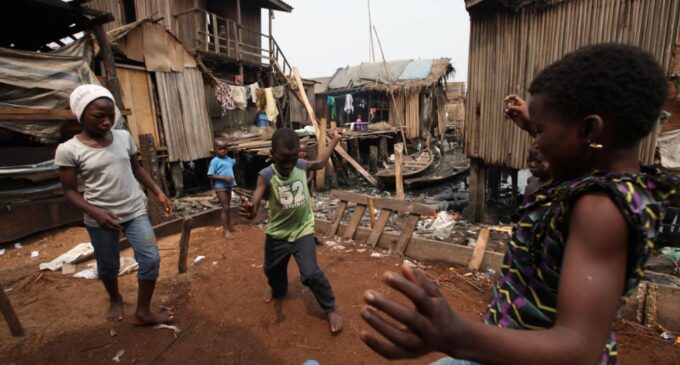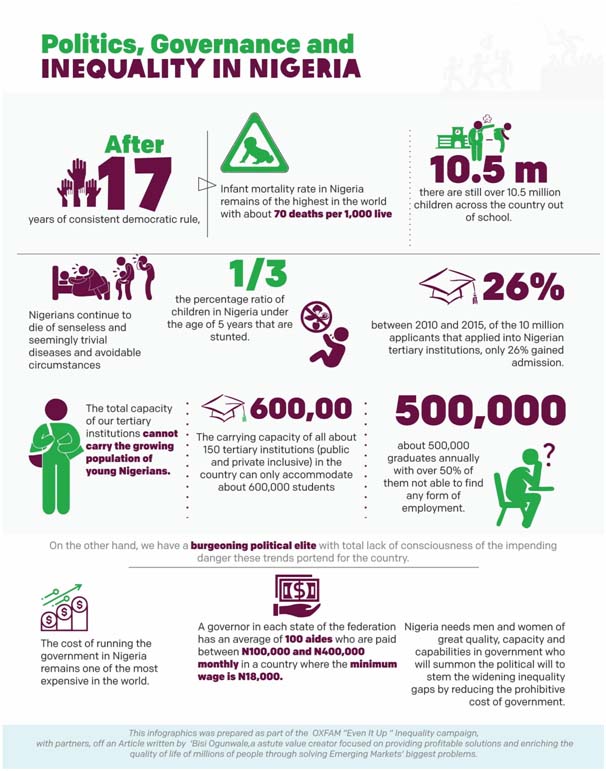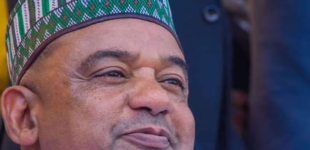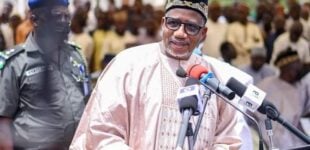Politics, governance and inequality in Nigeria

One very sunny Thursday afternoon in the second week of January 2001, with a few of my classmates, in a chartered J5 Mercedes Benz 14-seater bus, we drove down the unpaved, rough and dusty road of a small village called Sepeteri very close to Iseyin in Oyo state on an excursion to visit the Old Oyo National Park.
As we descended the sloppy roads just outside the town, I noticed a hamlet of about 7 huts but what caught my attention was the sight of a small, young boy of school age who was running down from his father’s tent towards the main road just for him to see another type of vehicle passing through his settlement. I was very inquisitive about the boy’s action and our driver would later tell us that the boy’s name was Adebayo and that he has known the boy to run towards the main road to catch a better view of each passing vehicle for over 3 years.
That was seventeen years ago. Let’s assume Adebayo was seven years old at the time, today he would have been at least twenty-three years old if he is still alive. However, the chances that his life will be remarkably different is very slim. After 17 years of consistent democratic rule, there are still over 10.5 million children like Adebayo across the country out of school.
Infant mortality rate in Nigeria remains of the highest in the world with about 70 deaths per 1,000 live births according to the World Bank’s estimates — world average is about 31. Nigerians continue to die of senseless and seemingly trivial diseases and avoidable circumstances. According to World Food Programme (WFP), one-third of children in Nigeria under the age of 5 years are stunted. That’s twice the rate of Thailand and three times that of Tunisia.
Data from National Bureau of Statistics (NBS) and Joint Admission Matriculation Board JAMB shows that between 2010 and 2015, of the 10 million applicants that applied into Nigerian tertiary institutions, only 26% gained admission. The reason is not far-fetched. The total capacity of our tertiary institutions cannot carry the growing population of young Nigerians. The carrying capacity of all about 150 tertiary institutions (public and private inclusive) in the country can only accommodate about 600,000 students out of which about 500,000 graduates annually with over 50% of them not able to find any form of employment.
On the one hand, we have a country breeding young malnourished child with no access to education and quality healthcare system as well as an alarming number of unemployed young adults while on the other hand, we have a burgeoning political elite with total lack of consciousness of the impending danger these trends portend for the country. One begins to wonder if the political class is not deliberately keeping the inequality gaps widening for its own selfish interests.

The cost of running the government in Nigeria remains one of the most expensive in the world. It is no news that our federal lawmakers are one of the highest paid in the world but they are not the only problem. A 2016 survey by the News Agency of Nigeria (NAN) revealed that a governor in each state of the federation has an average of 100 aides who are paid between N100,000 and N400,000 monthly in a country where the minimum wage is N18,000. For example, according to the survey, the Niger state governor, Abubakar Bello has 317 aides’ asides his 14 commissioners while his counterparts in Taraba and Edo have 210 and 192 ‘Special Assistants’ respectively. There is nothing special about many of those so-called Assistants, I can assure you.
2019 is around the corner and so time for elections is here again. It is therefore imperative that the political class begin to think about good governance and politics that reduces the level of inequality among the people and migrate a significant number of people away from poverty characterised by lack of education, unemployment, poor nutrition, insecurity and poor healthcare.
It is time Nigeria close the gap of gender and physical inequalities by proving equal opportunities for both female and male children especially through education and wealth distribution among adults as well as giving physically challenged and disabled people an opportunity to live a better life in the society.
Nigeria needs men and women of great quality, capacity and capabilities in government who will summon the political will to stem the widening inequality gaps by reducing the prohibitive cost of government, narrowing income inequality as well as rectifying the misapplication of scarce resources of the country in addition to some other policies and political choices to create more opportunities and build better future for common Nigerians in a more integrated and sustainable manner
As an entrepreneur, ‘Bisi is a astute value creator focused on providing profitable solutions and enriching the quality of life of millions of people through solving Emerging Markets’ biggest problems. He is the Co-Founder/CFO of Essential Infrastructure Corporation (UK) Limited, an infrastructure investment company operating mainly in emerging markets, with a focus on assets in these infrastructure sectors: Utilities, Transportation, Real Estate, Green & Renewable Energy, Agriculture, Water and Wastewater.
Views expressed by contributors are strictly personal and not of TheCable.

















There are no comments at the moment, do you want to add one?
Write a comment